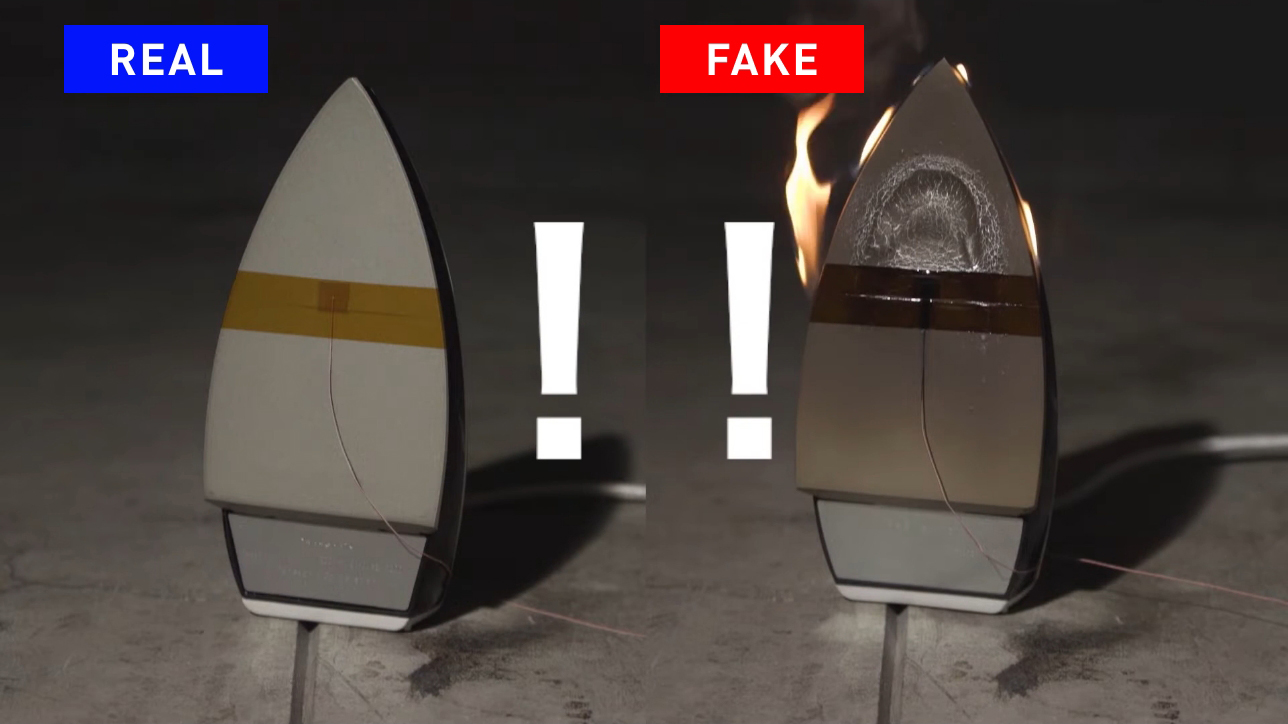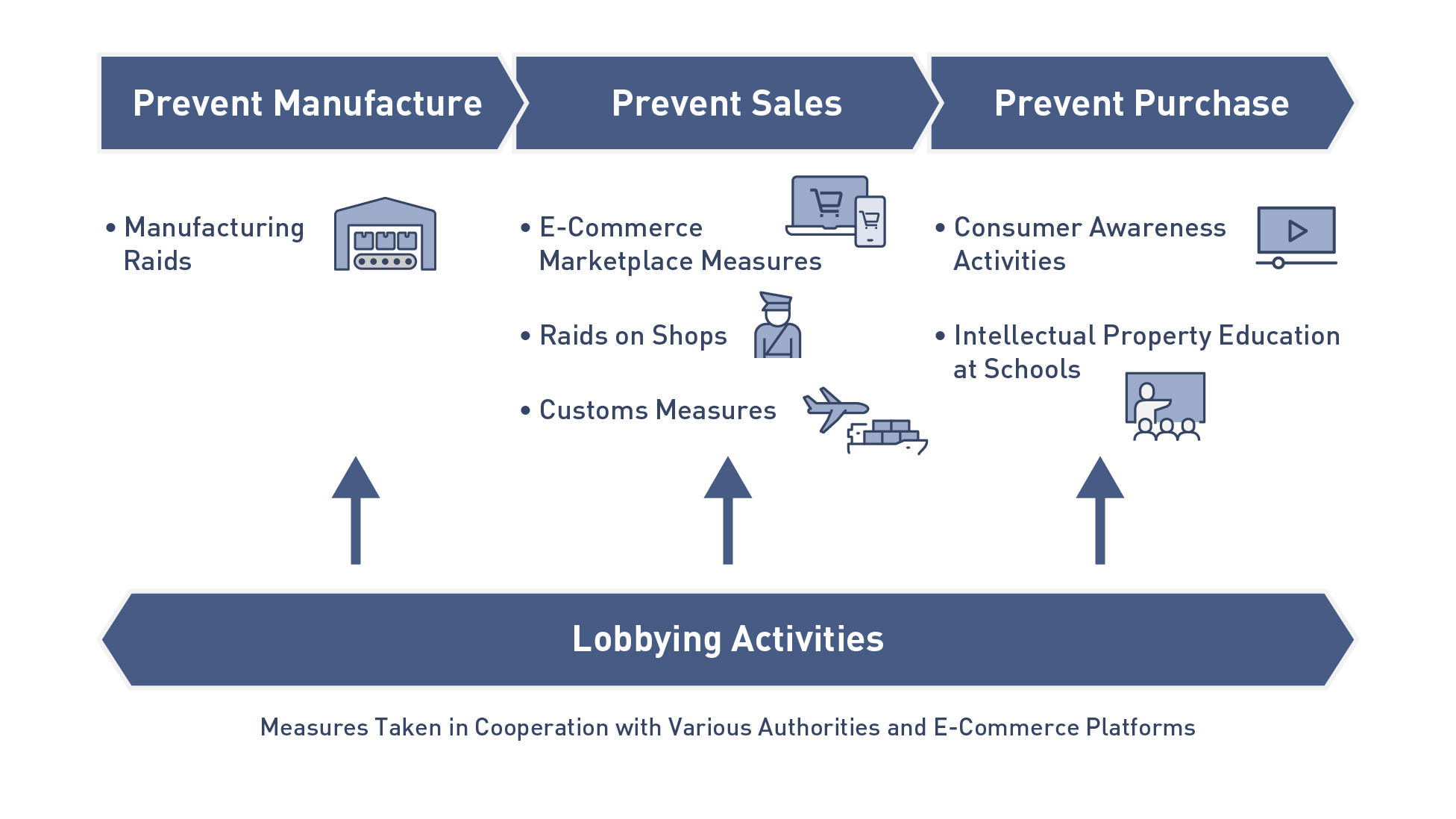Recent trends indicate a significant surge in online sales of counterfeit products resembling or bearing the name of genuine Panasonic products, in addition to those being sold in physical markets. Counterfeit products manufactured without regard to safety standards don’t just endanger customers. They also threaten the safety of society by becoming a source of funding for organized crime.
To foster the creation of a healthy society by protecting our customers from counterfeit products and fraudulent activities, the Panasonic Group has established the “No Counterfeit Products to Be Manufactured, Sold, or Purchased” campaign.
Is the Product Really Genuine?
The manufacture or sale of products that imitate or falsely use the name of an existing brand is illegal in most countries. Counterfeits exploit the brand’s credibility, misleading consumers into believing that those products are genuine, even though they may differ from the original or may not even exist as official products from the brand.
Counterfeit Products Illegally Using the Panasonic Brand
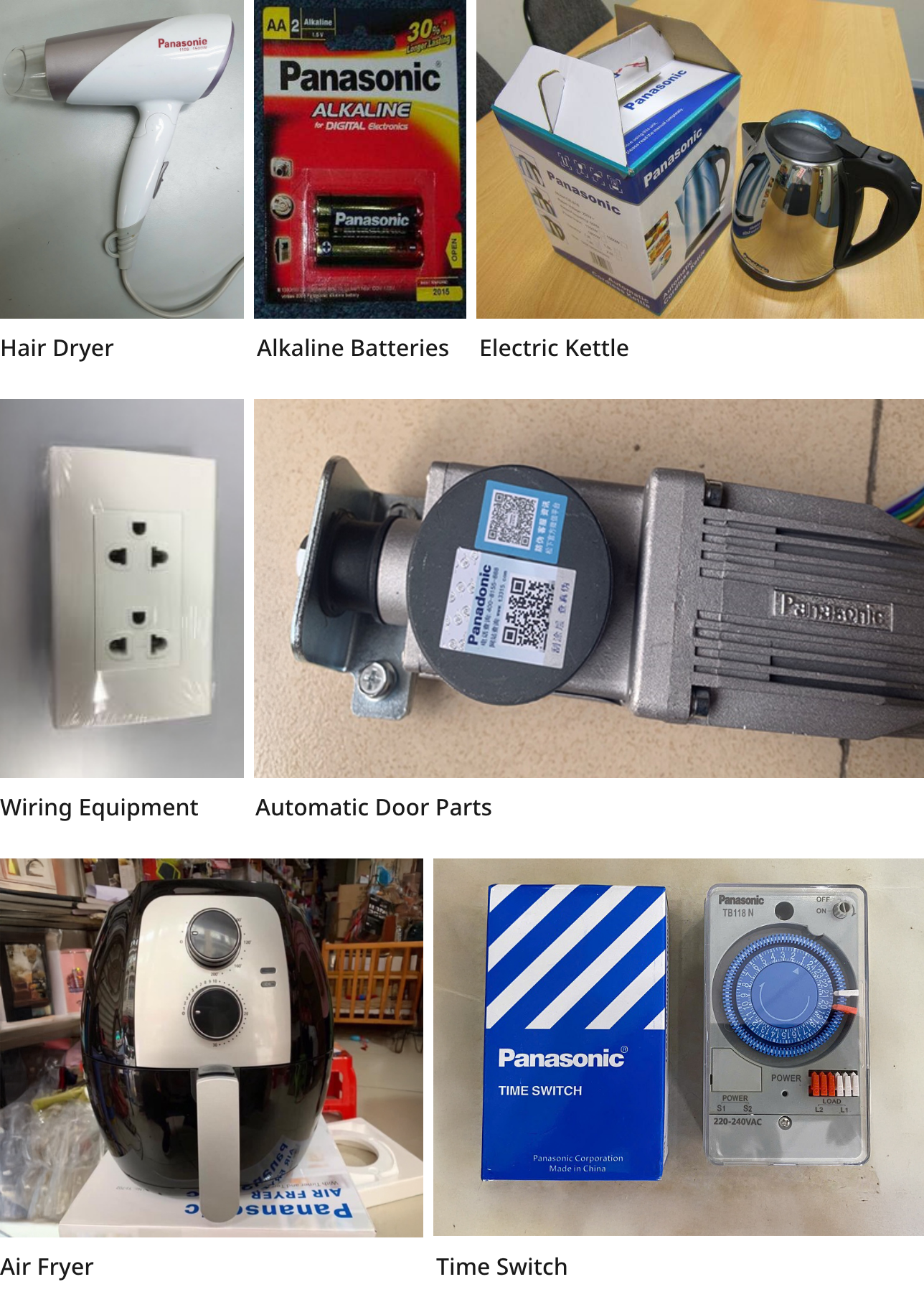
These are all counterfeit products posing as Panasonic products. The Panasonic Group continues to cooperate with national and regional authorities cracking down on counterfeit products.
There Are Various Kinds of Counterfeit Products
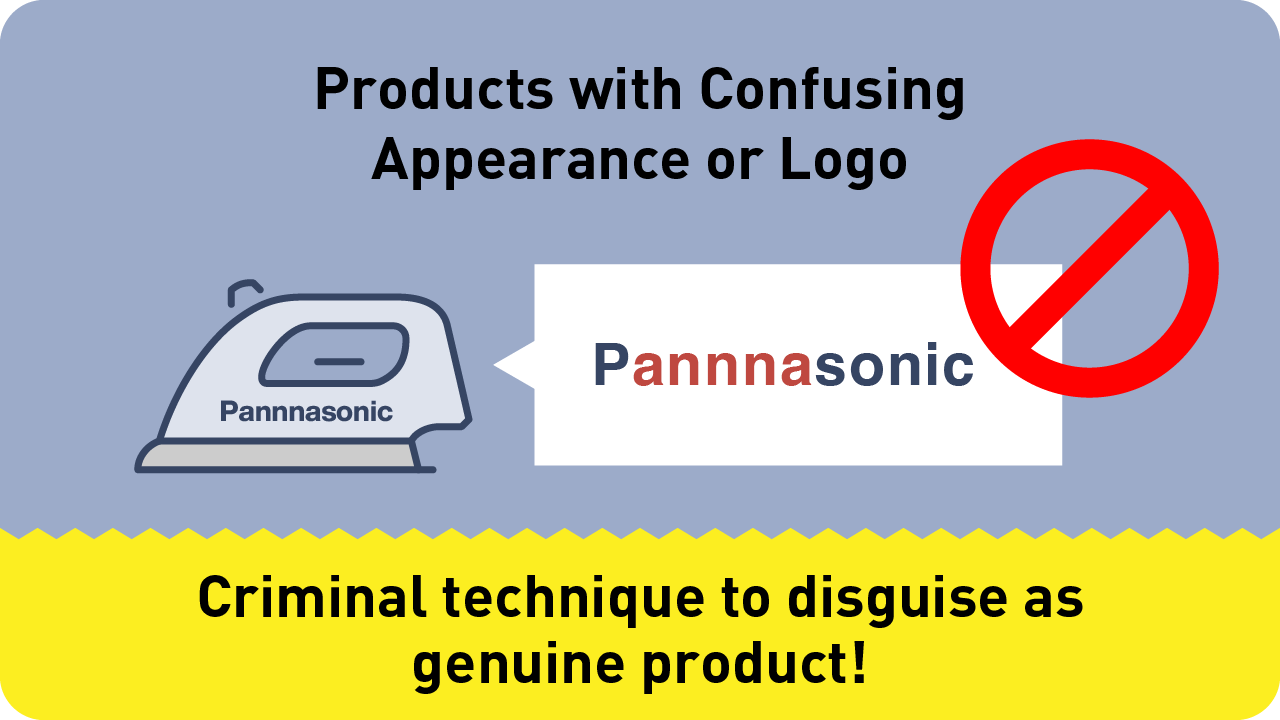
Using similar appearances or logos to mislead people into believing that products are genuine. (trademark infringement)
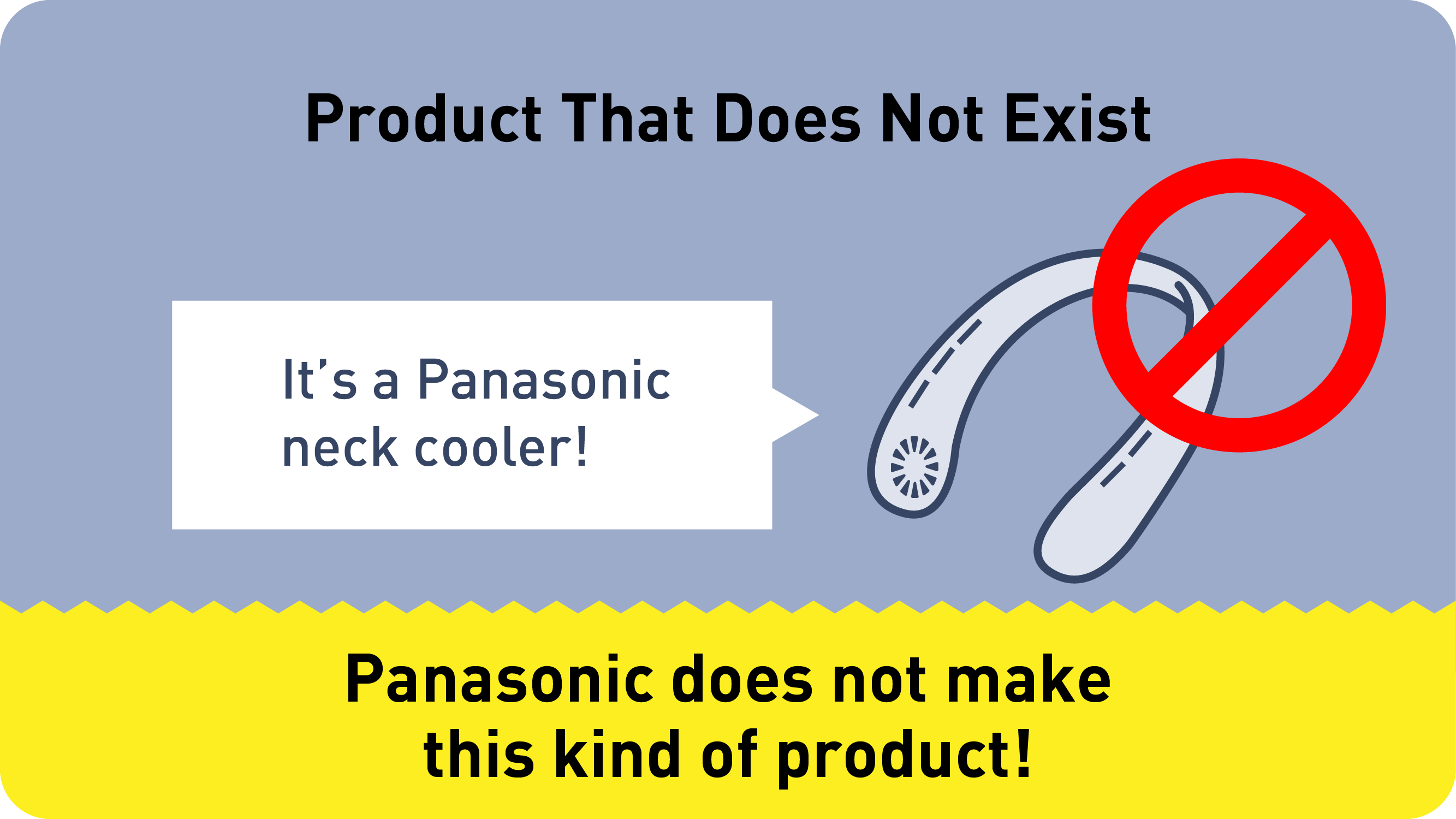
Selling products not manufactured by the Panasonic Group as if they were genuine products. (unauthorized use of trademarks)
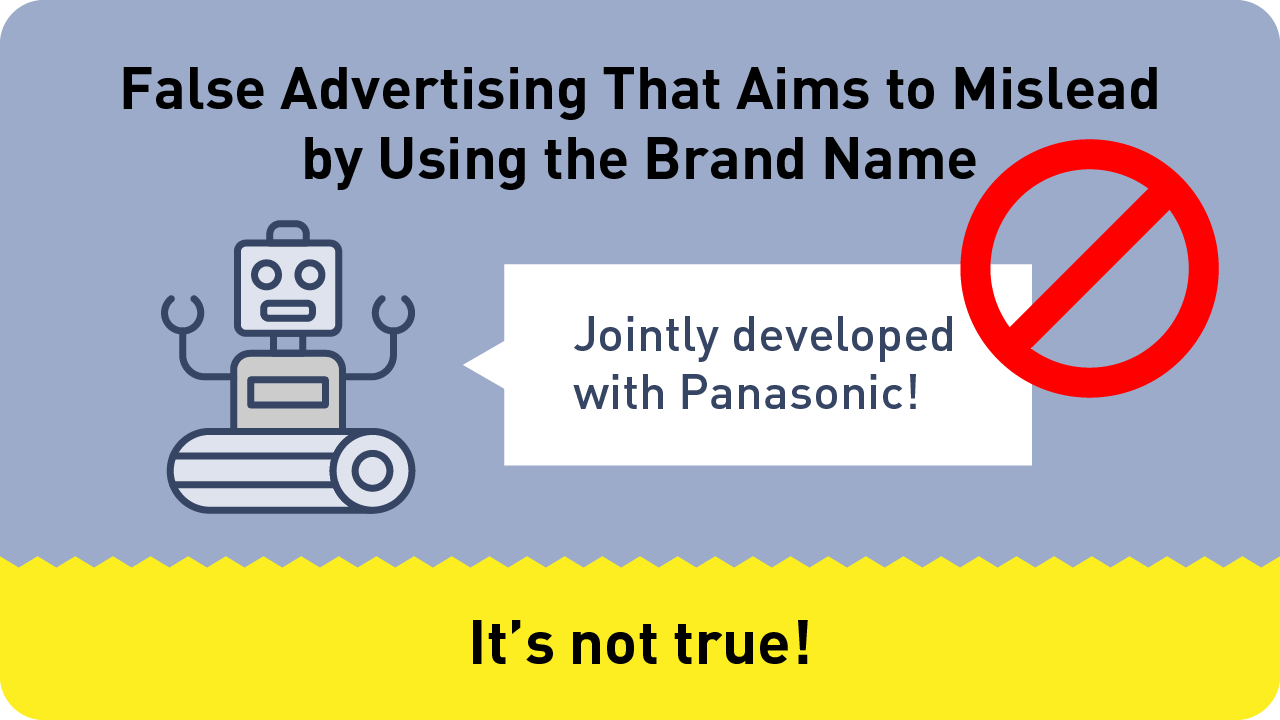
False advertising to gain trust by falsely claiming to be “jointly developed with Panasonic,” etc.
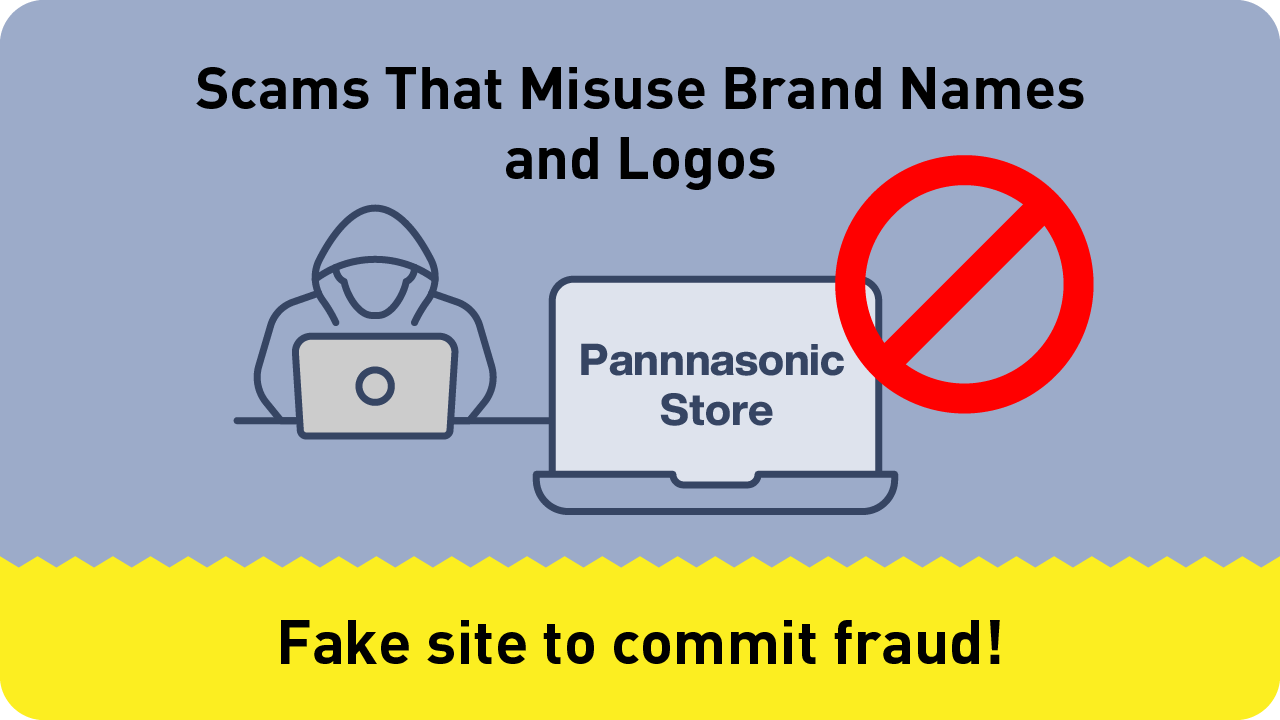
Fraudulent schemes and scams to obtain personal information through emails or websites using Panasonic’s name.
Five Points to Spot Counterfeit Products
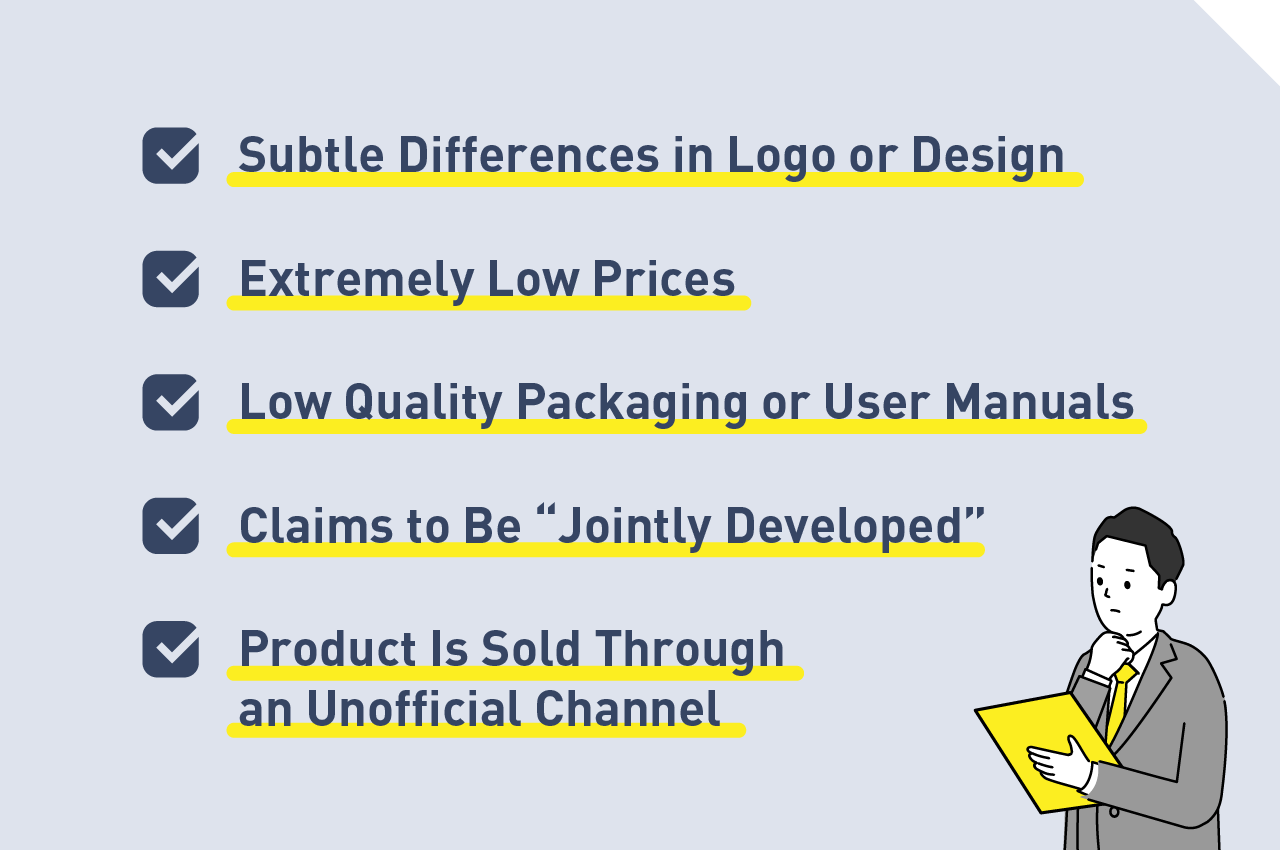
■ Subtle Differences in Logo or Design
The brand name itself or the typeface or arrangement of the logo differs from genuine product.
■ Extremely Low Prices
The product is sold at an unnaturally low price compared to the market price, such as half price or below.
■ Low Quality Packaging or User Manuals
Poor quality printing or contents and descriptions are inaccurate, suspicious, etc.
■ Claims to Be “Jointly Developed”
The product does not have the brand name on it but falsely claims the involvement of the genuine brand manufacturer.
■ Sold Through an Unofficial Channel
The product is being sold by an unreliable e-commerce market or from a private seller.
Risks to Health and Safety Hidden in Counterfeit Products
All counterfeit products are manufactured with disregard to legal and safety standards. In particular, the use of counterfeit electrical appliances can lead to serious accidents such as electric shocks, fires, and explosions.
Various Risks Associated with the Purchase and Use of Counterfeit Products
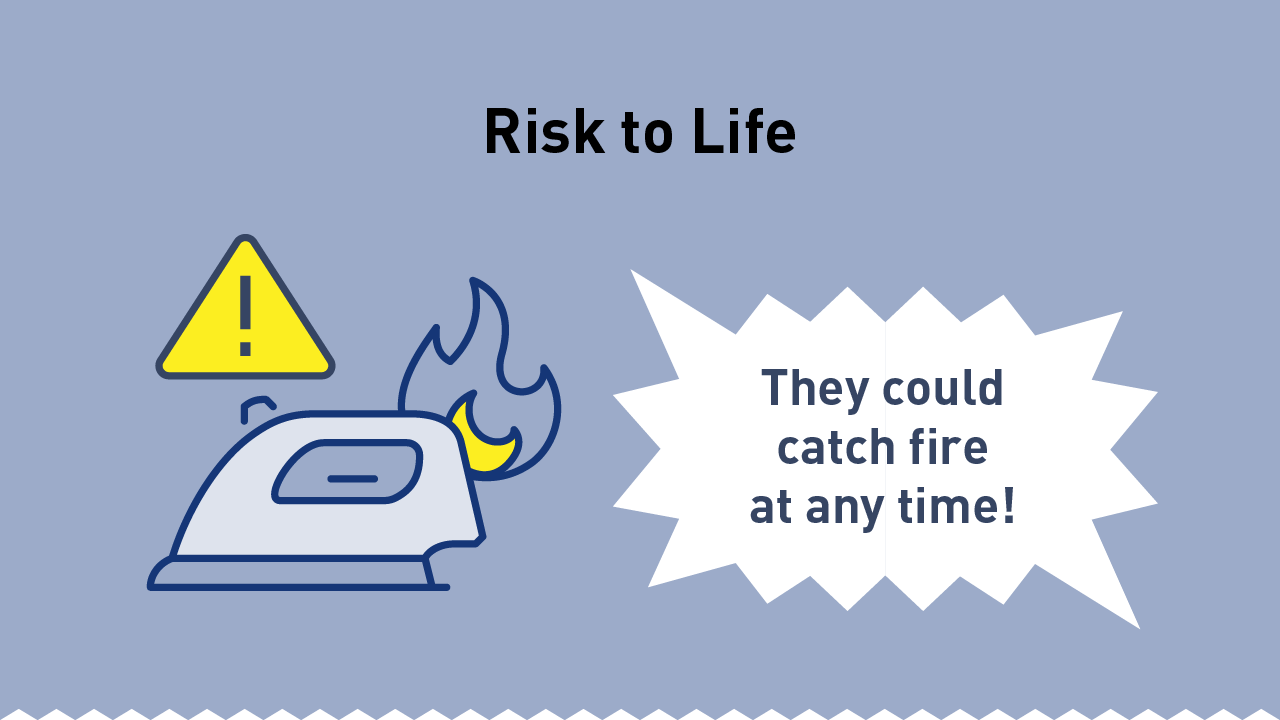
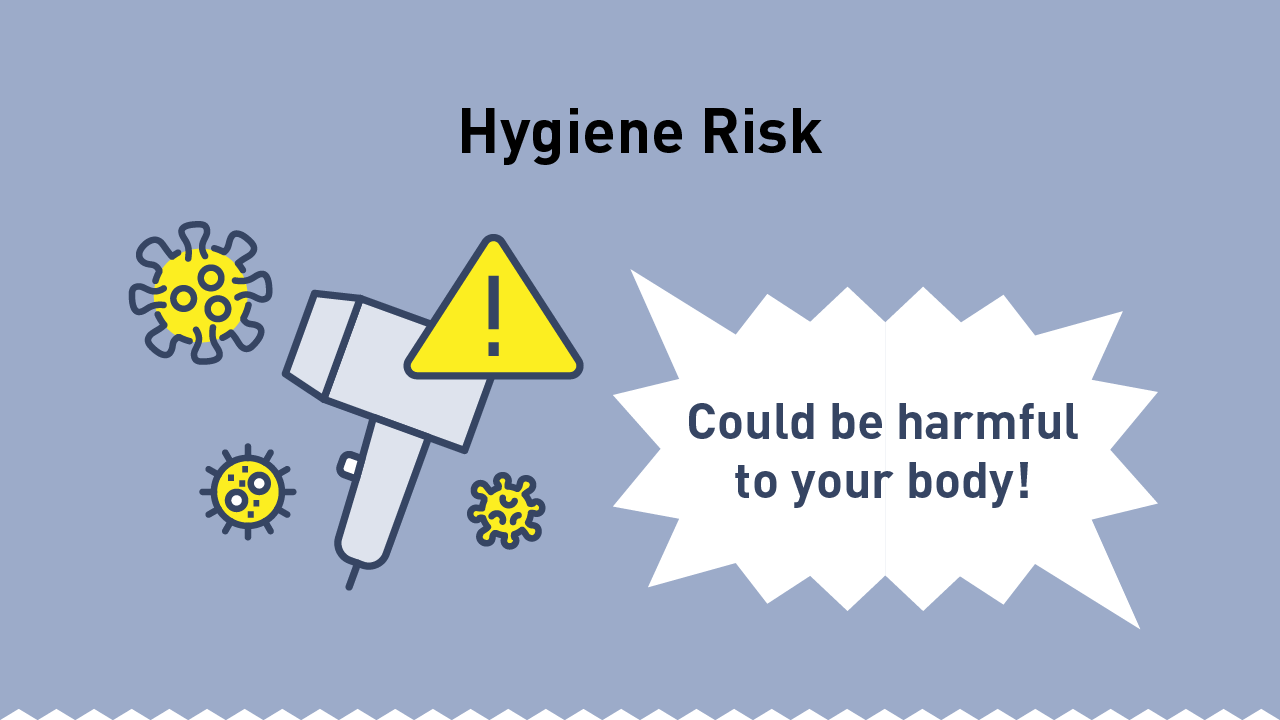
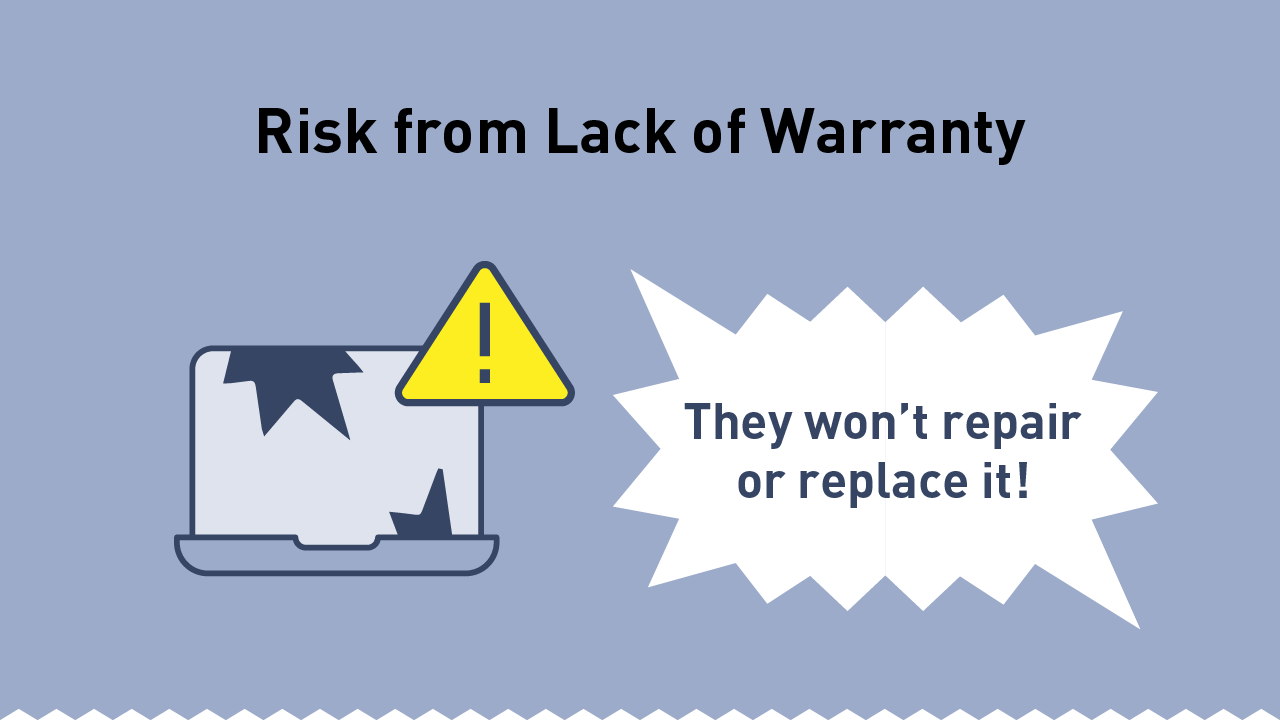
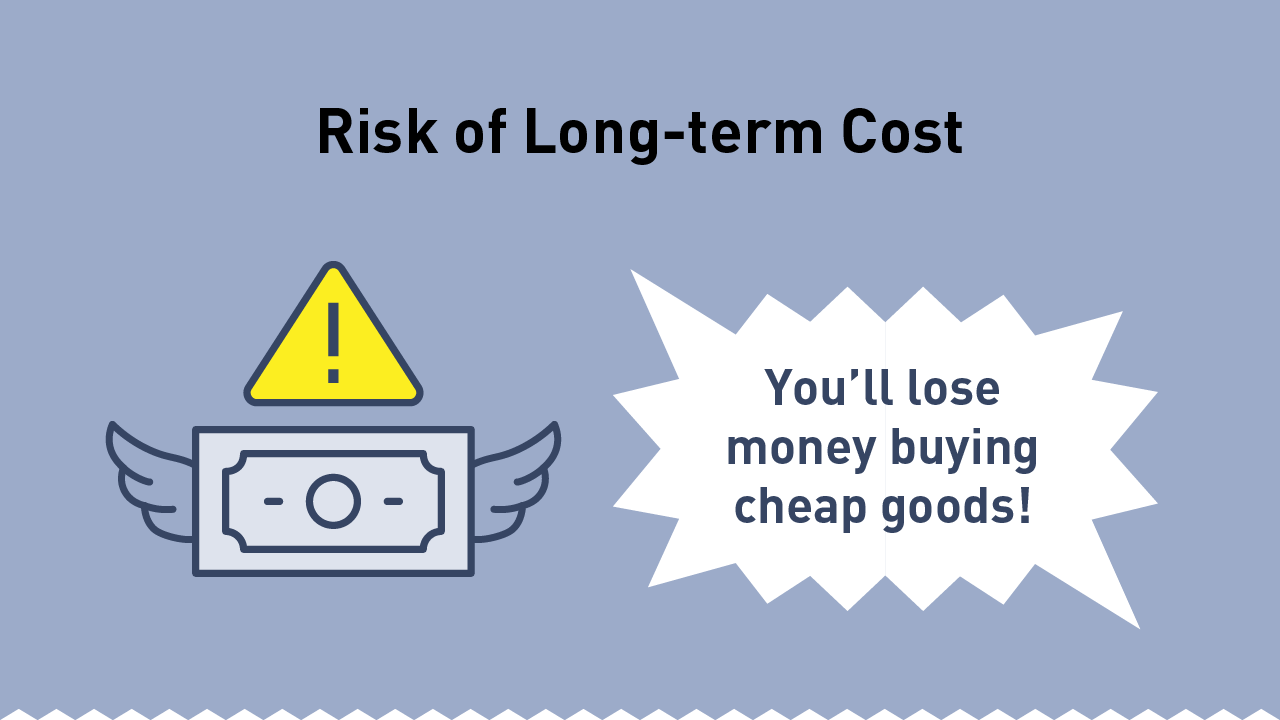
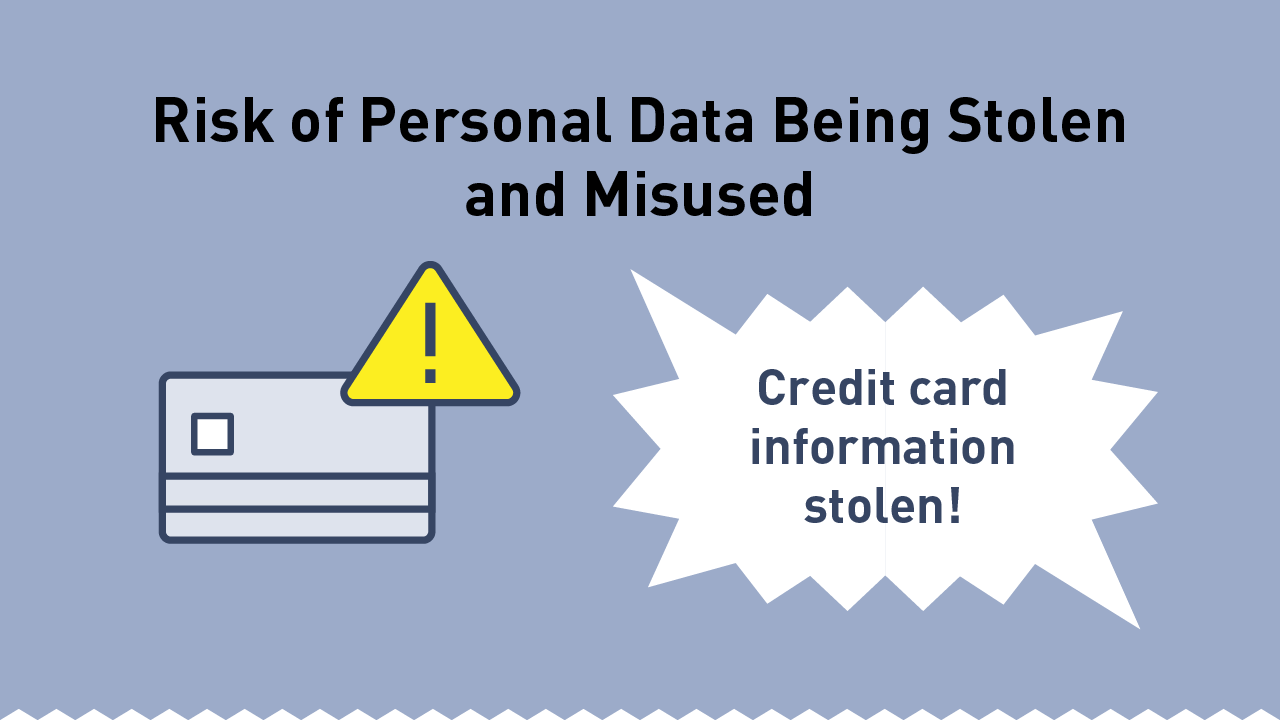
■ Risk to Life
Because electricity is used, there is a risk of serious accidents directly affecting the life such as electric shock, fire, or explosion.
■ Hygiene Risk
Some counterfeit products are manufactured in unhygienic environments and contact with products may cause health problems.
■ Risk from Lack of Warranty
There is a high risk of not being able to receive assistance or compensation if there is an accident involving a counterfeit product. There is also a high risk that the product will not be repaired or replaced if it is faulty. There is no reliable contact information for inquiry.
■ Risk of Long-term Cost
You are more likely to be dissatisfied with poor performance and malfunctions with counterfeit products, and you may need to replace them soon, so they can end up costing more than choosing genuine products from the beginning.
■ Risk of Personal Data Being Stolen and Misused
There is a risk that personal information may be stolen and misused when making purchases from counterfeit product e-commerce sites.
Risks to Society Hidden in Counterfeit Products
According to the Organization for Economic Cooperation and Development (OECD), global counterfeit damage reached USD 509 billion in 2019. This represents 2.5% of global trade, up from USD 461 billion in 2013. Counterfeits not only deny profits to the holders of intellectual property rights, which would otherwise be legitimately gained, but illegal use of intellectual property rights can also provide financial resources to criminal organizations. This negatively impacts all aspects of society, including the economy, the environment, public safety, and security.
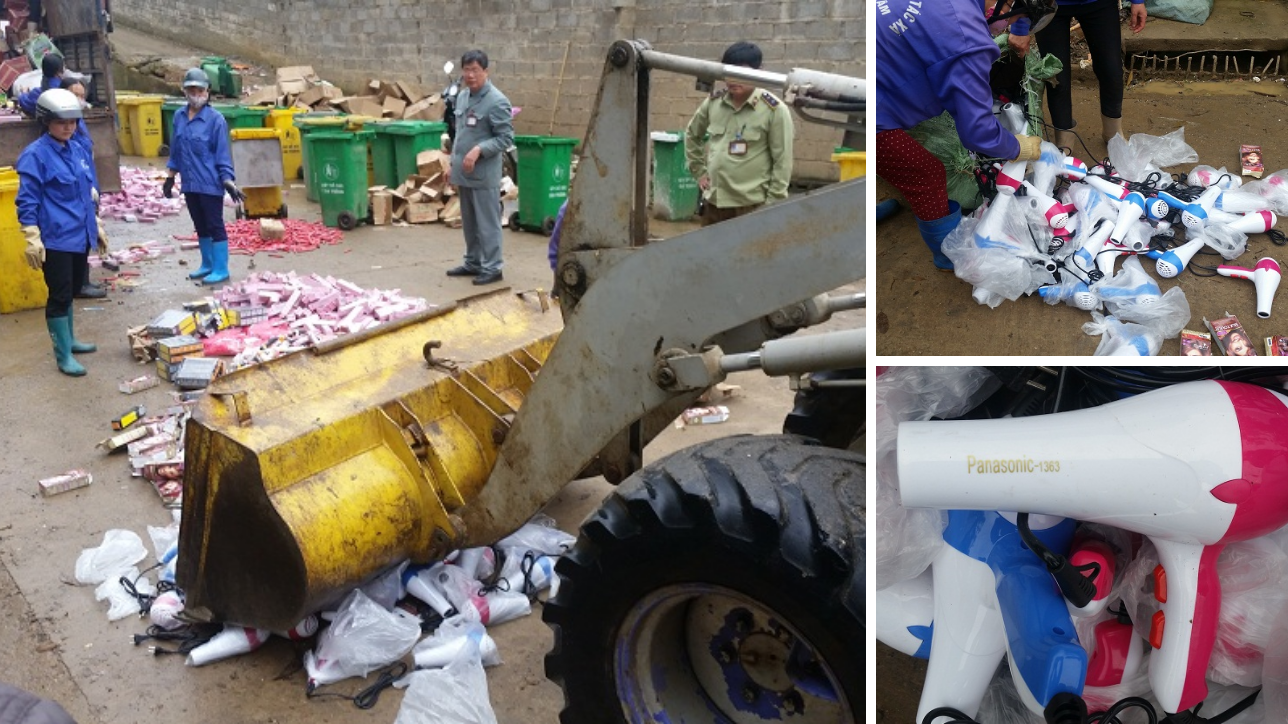
The Panasonic Group cooperates with national and regional authorities in exposing counterfeit products. The image shows a checkpoint in Lang Son Province, Vietnam, where counterfeit hair dryers and other counterfeit versions of Panasonic products were destroyed. (2017)
Counterfeits Negatively Impact Society
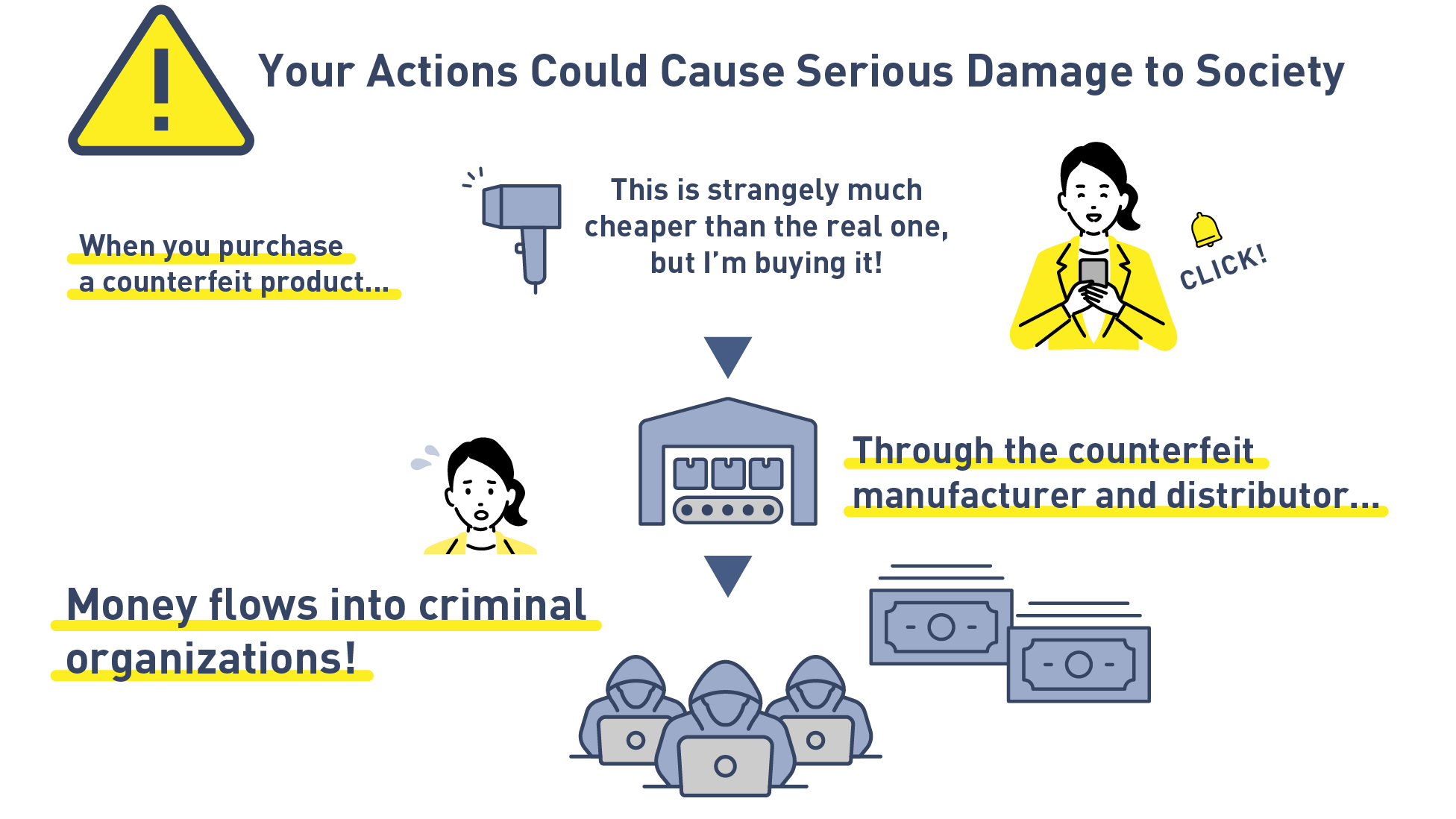
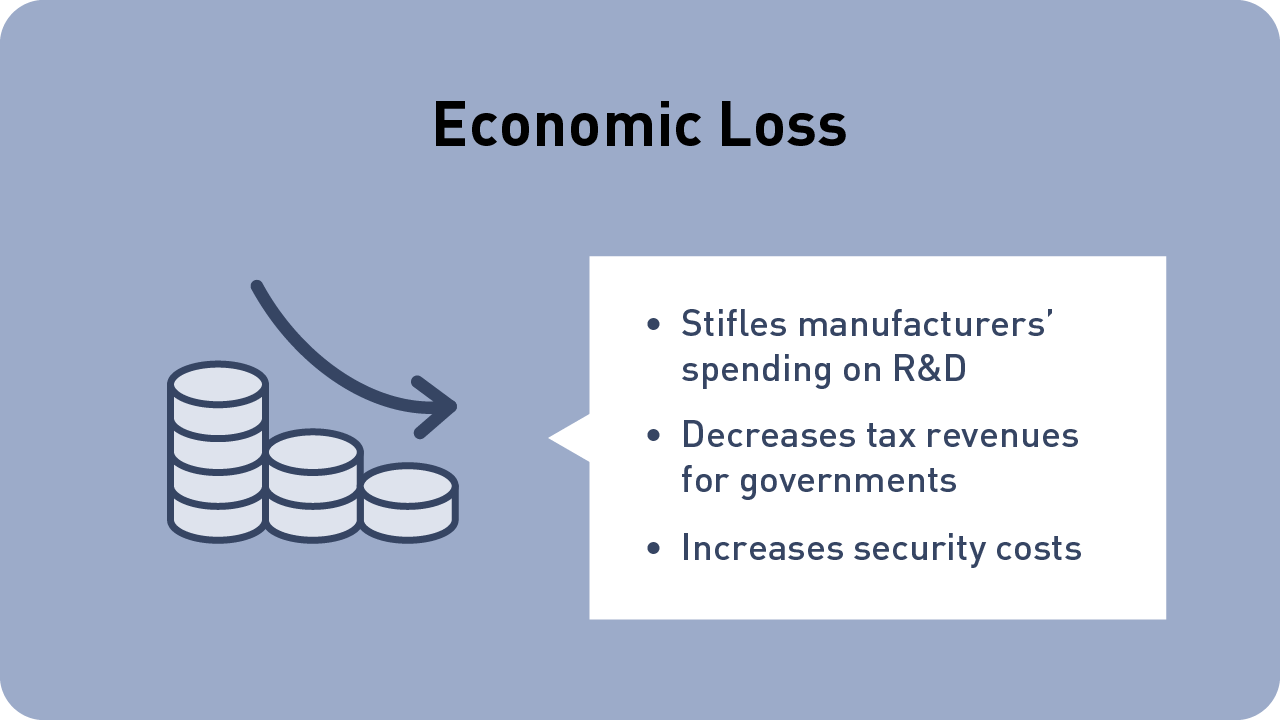
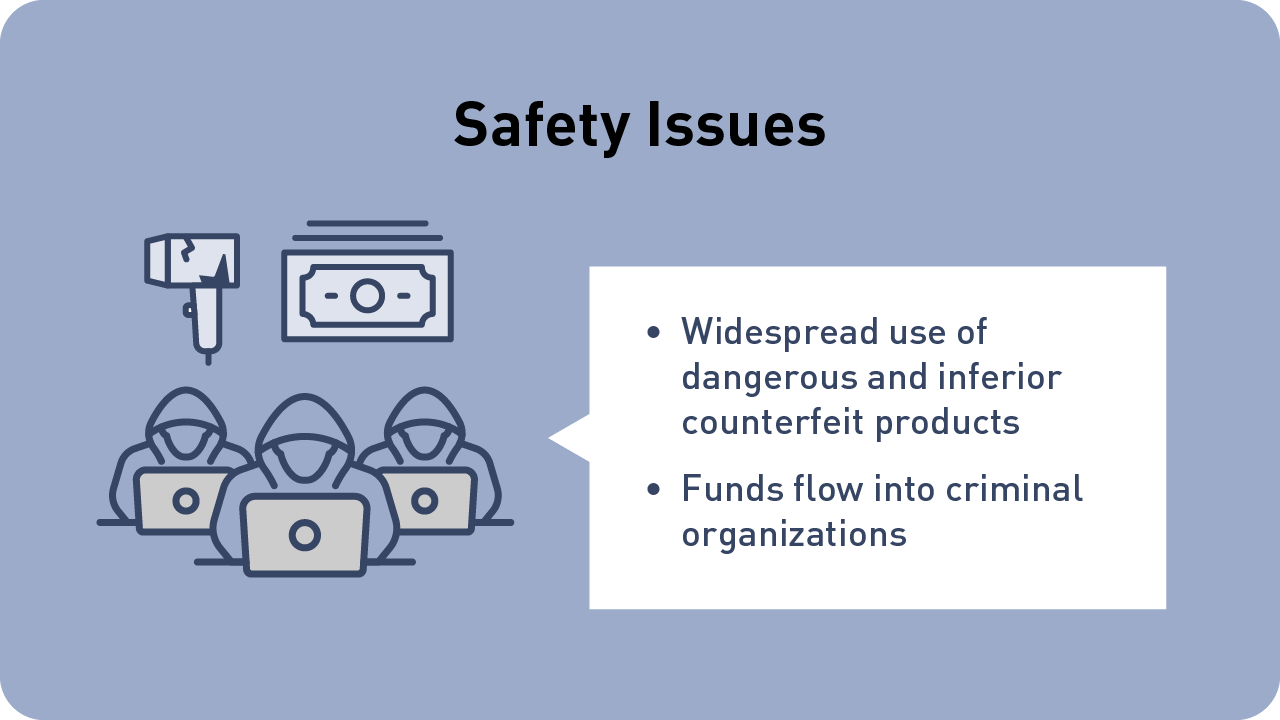
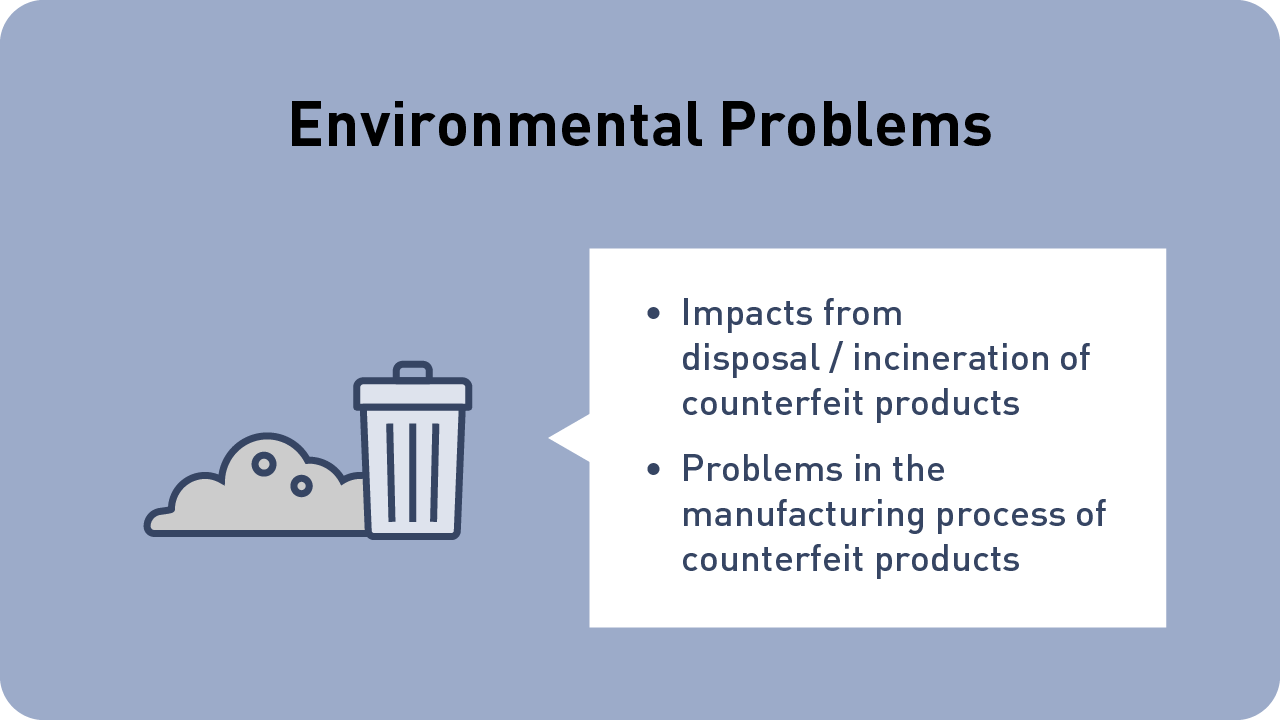
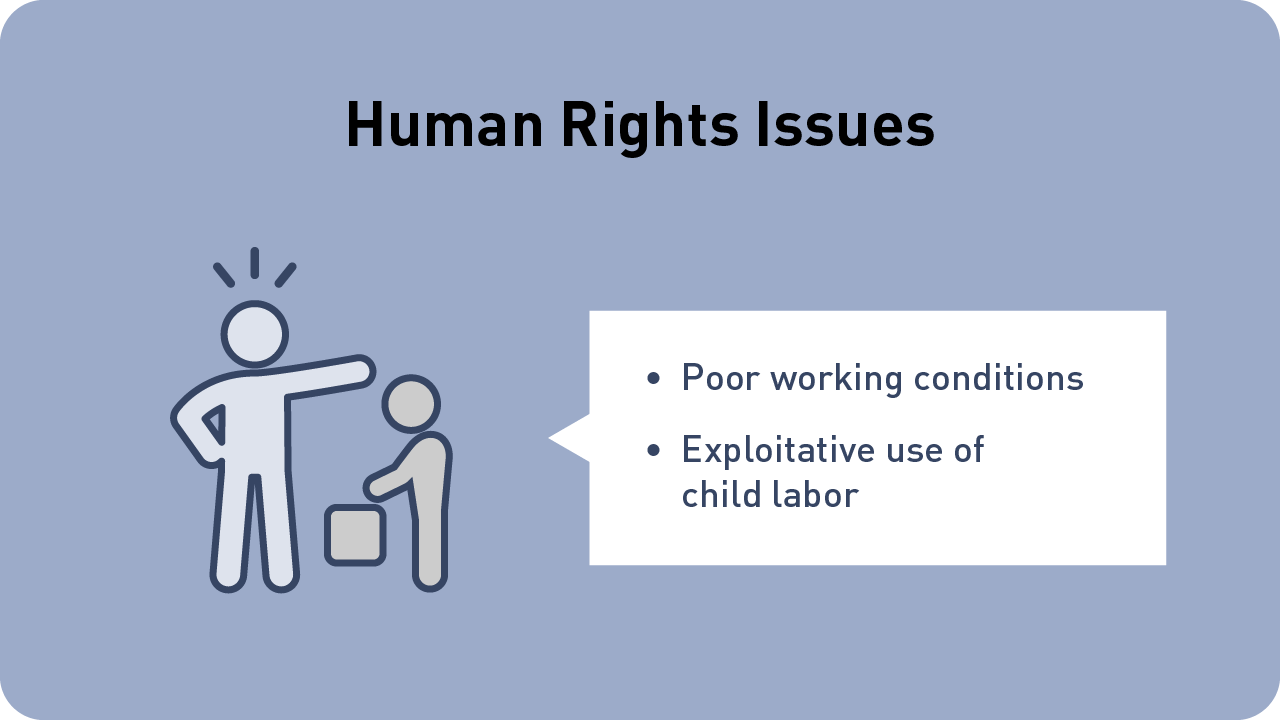
■ Economic Loss
- Reduces manufacturers’ expenditures and motivation for R&D, stifling innovation
- Decreases tax revenues for governments due to loss of sales for manufacturers
- Increases security costs for governments due to increased activity of criminal organizations
■ Safety Issues
- Increases threats to safety of society as money flows into criminal organizations
- Spreading dangerous and inferior counterfeit products throughout society
■ Environmental Problems
- Problems from disposal of counterfeits and CO2 emissions from incinerating counterfeits
- Health hazards in counterfeit manufacturing facilities
- Reduces availability of raw materials
■ Human Rights Issues
- Poor working conditions disregarding safety standards
- Exploitation of children as cheap labor
Panasonic Group’s Anti-Counterfeiting Measures for Brand Protection
The Panasonic Group regards anti-counterfeiting measures as part of our corporate social responsibility. We are committed to “No Counterfeit Products to Be Manufactured, Sold, or Purchased” to protect customers, protect intellectual property including brands, and solve social issues.
Prevent Manufacture

Manufacturing Raids
To prevent all kinds of deceptive and misleading activities including the manufacture of counterfeit products, the Panasonic Group has registered trademarks for the protection of our rights in 191 countries and territories (as of February 2025). In addition, the Panasonic Group has cooperated with national and regional enforcement authorities in raids on counterfeit production sites and seizures of counterfeit products through preliminary investigations and other means.
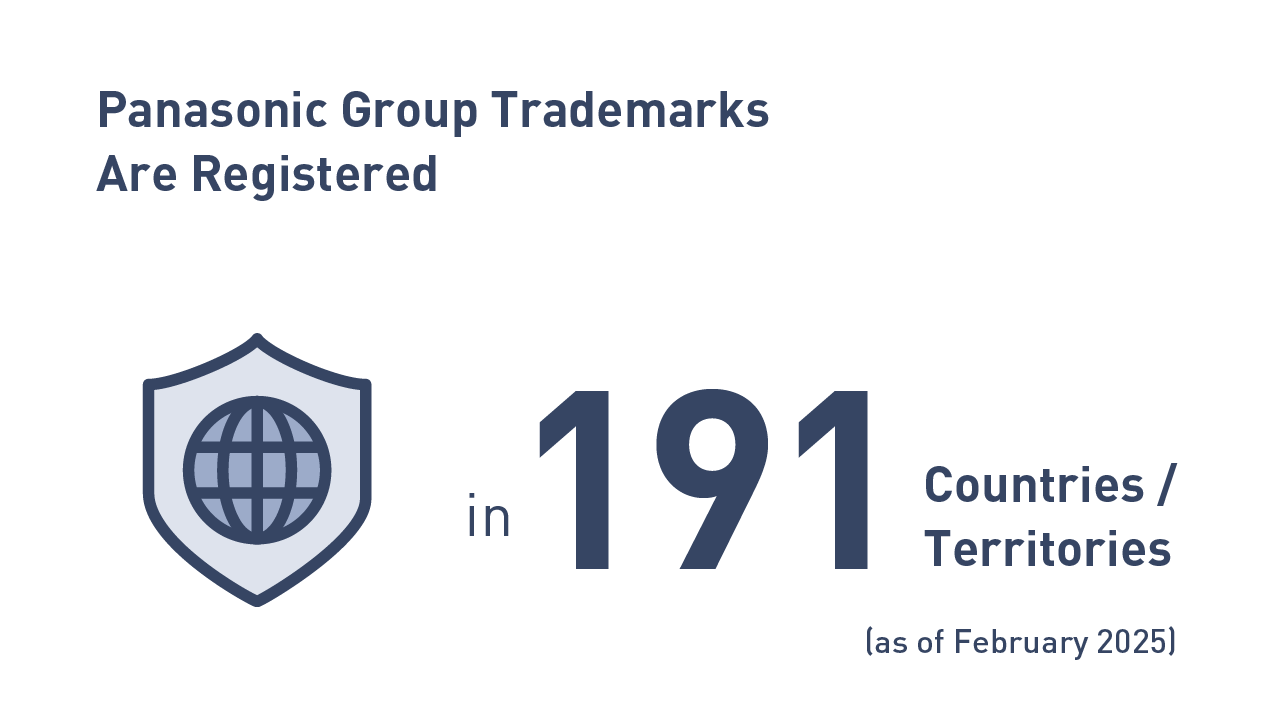
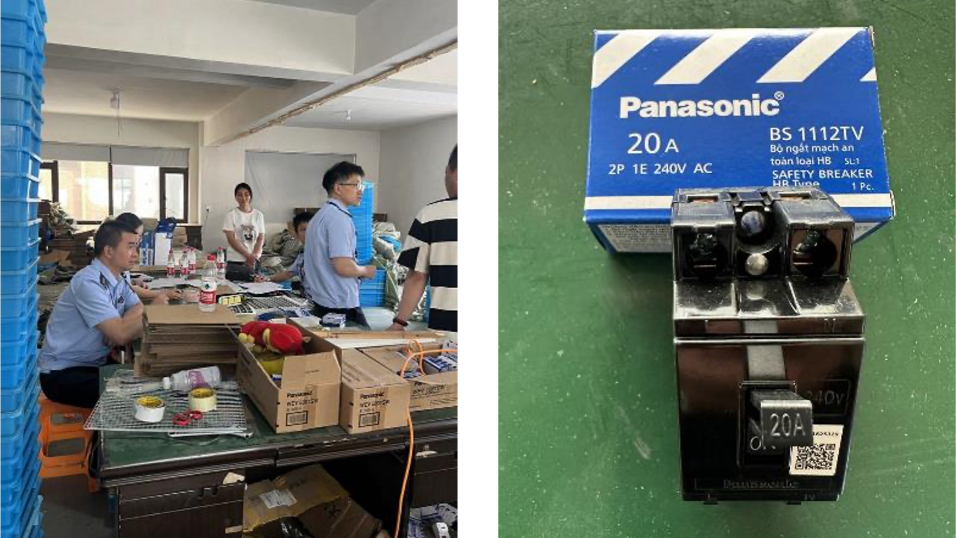
The scene of a raid on a manufacturer of counterfeit products in Zhejiang Province, China. 15,200 electrical outlets and 23,750 breakers were seized. (2024)
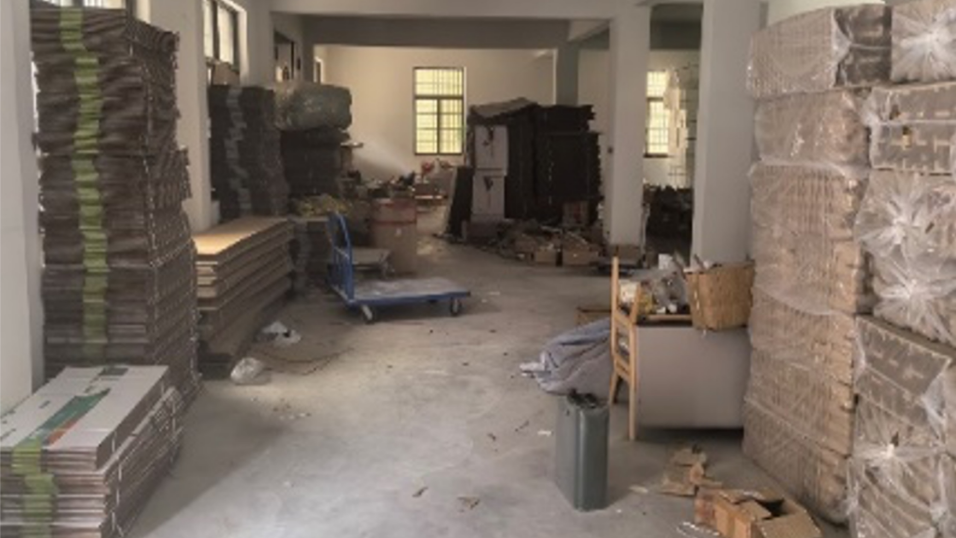
Counterfeit automatic door parts were seized from a manufacturer in Anhui Province, China. (2024)
Prevent Sales

E-Commerce Marketplace Measures
In recent years, counterfeit products have been increasingly sold in e-commerce marketplaces such as Amazon. The Panasonic Group regularly patrols approximately 1,000 e-commerce markets in around 100 countries (as of February 2025). As soon as we detect counterfeits of our products, we notify the e-commerce platforms that carry the products and request for the products to be removed from sites. In addition, there are fraudulent activities to steal credit card information using fake websites that sell unauthorized Panasonic Group products or use our brand name or logo. We have been reporting these criminal activities to the authorities as soon as we discover them.
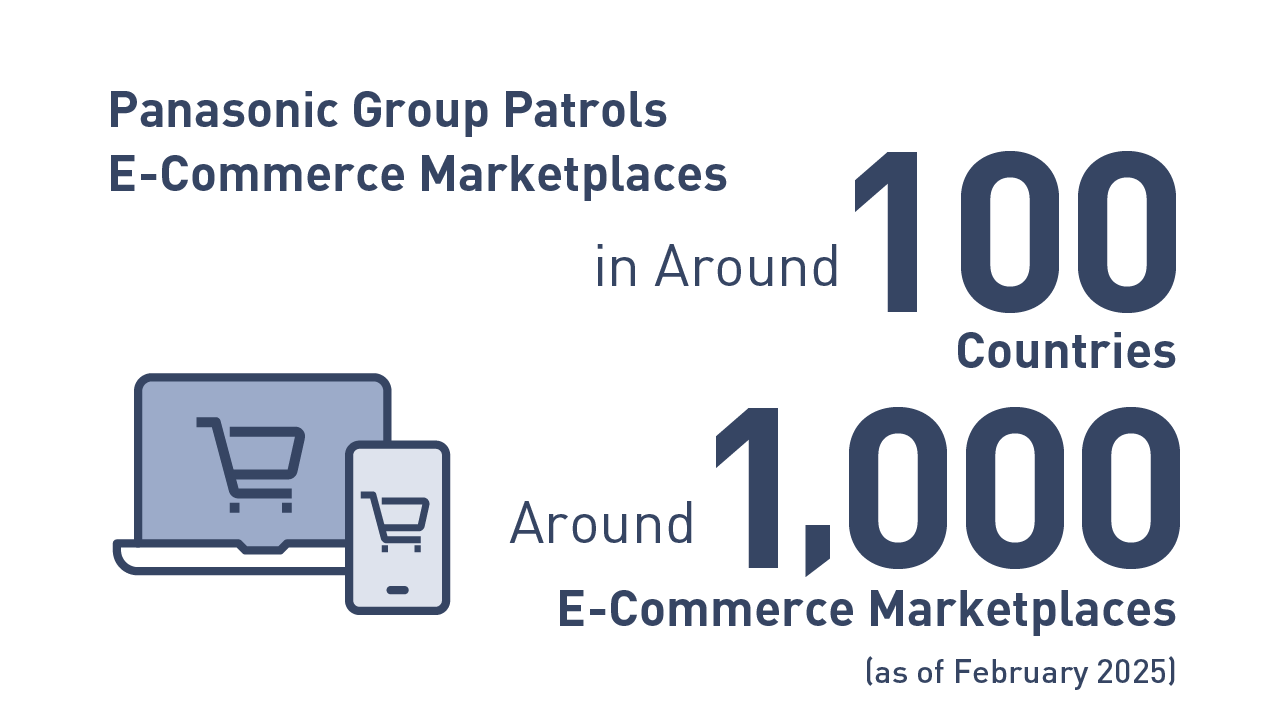
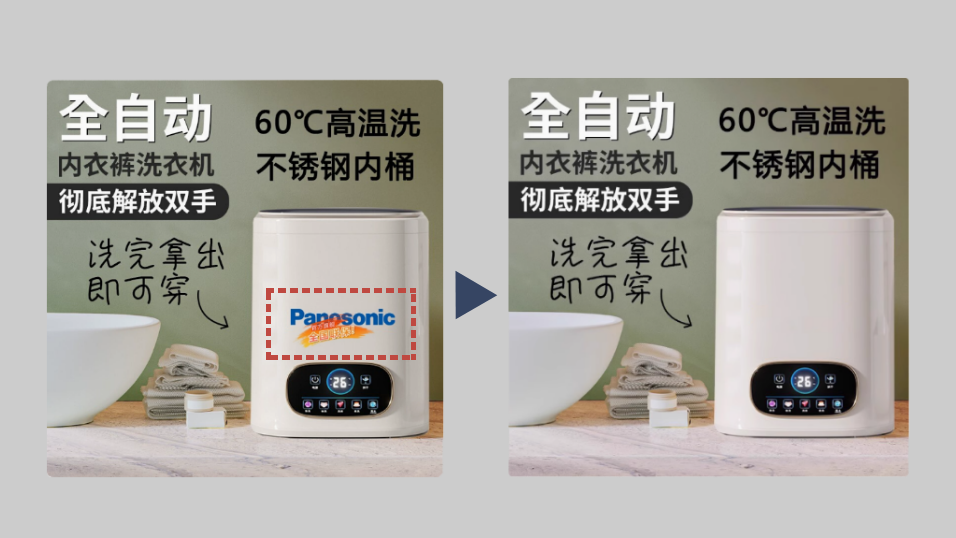
Counterfeit compact washing machine being sold on the Chinese e-commerce site Taobao with unauthorized use of our trademark. We reported 68 cases of trademark infringement and had the site remove the word “Panasonic” on all display photographs. (2024)
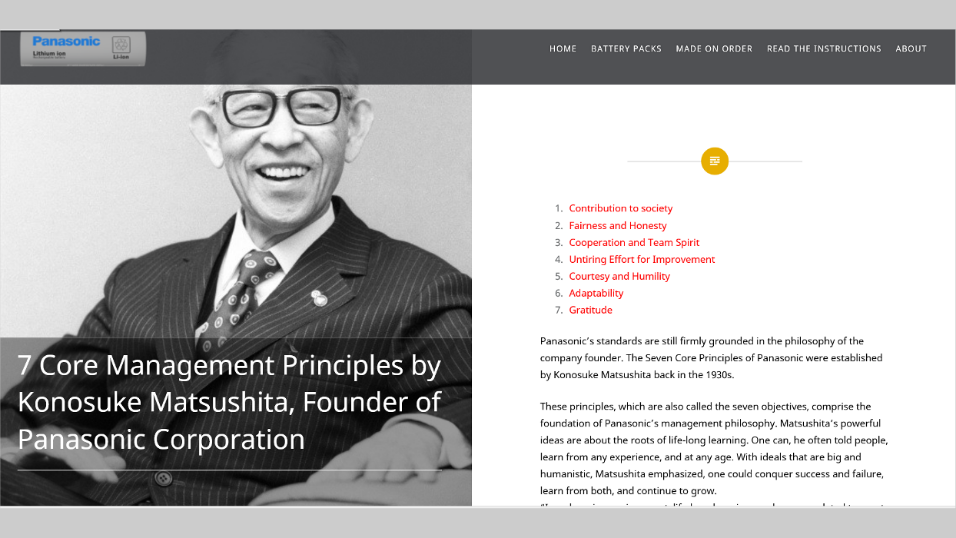
Fake website selling lithium batteries for the European region. In addition to illegally using the “Panasonic” brand name, the site also used the founder of our company’s photograph and other information to mislead consumers. (2021)
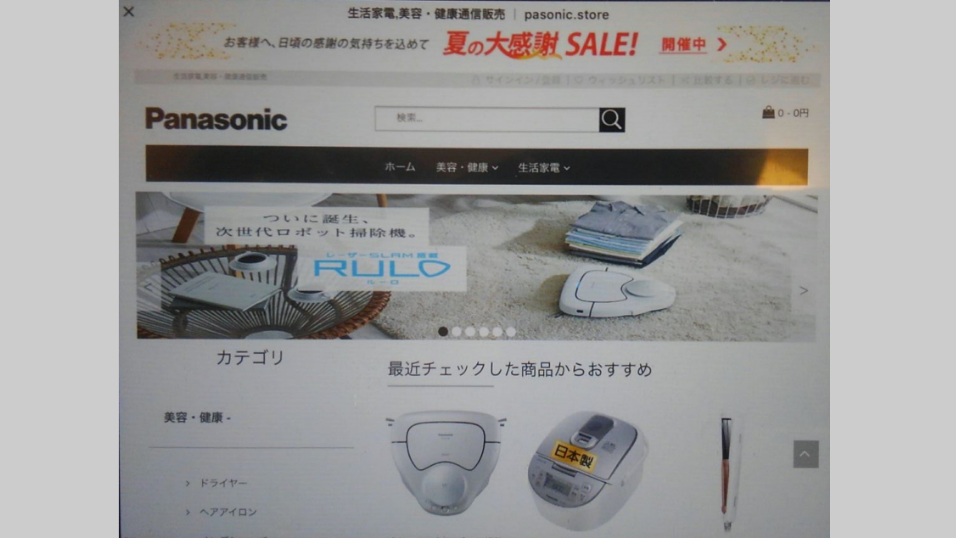
Scam site in Japanese illegally using the Panasonic brand name. No products were delivered, and personal data was stolen, e.g. credit card details. (2021)

Raids on Shops
The Panasonic Group has been cooperating with authorities in various countries and territories in their investigations to crack down on retailers, warehouses, and wholesalers that sell counterfeit products. In China, there have been particularly widespread counterfeit sales using trade names that resemble “Matsushita Electric” or “Panasonic” to mislead consumers. The Panasonic Group has been stopping these rights infringements by taking legal action.
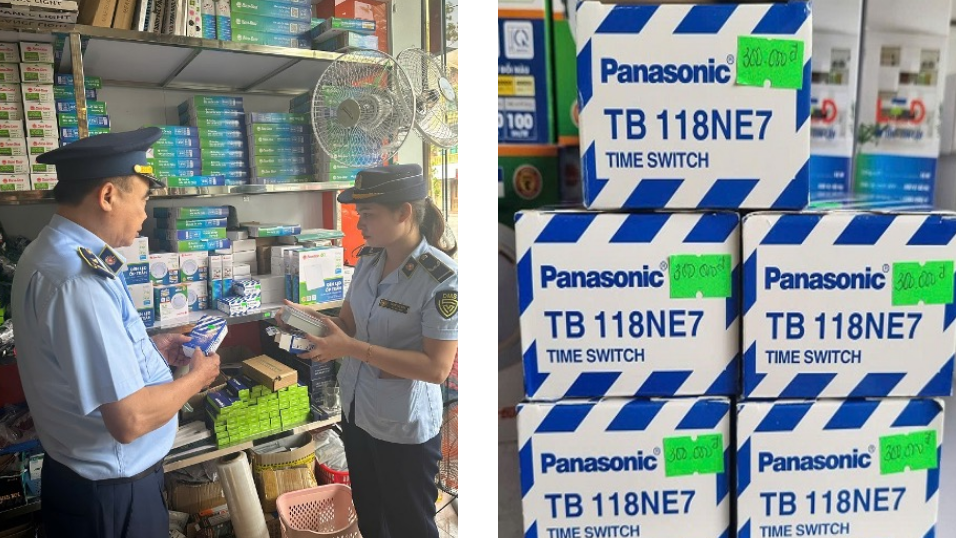
Raid on a store in Vietnam. Five counterfeit time switches were seized. (2024)
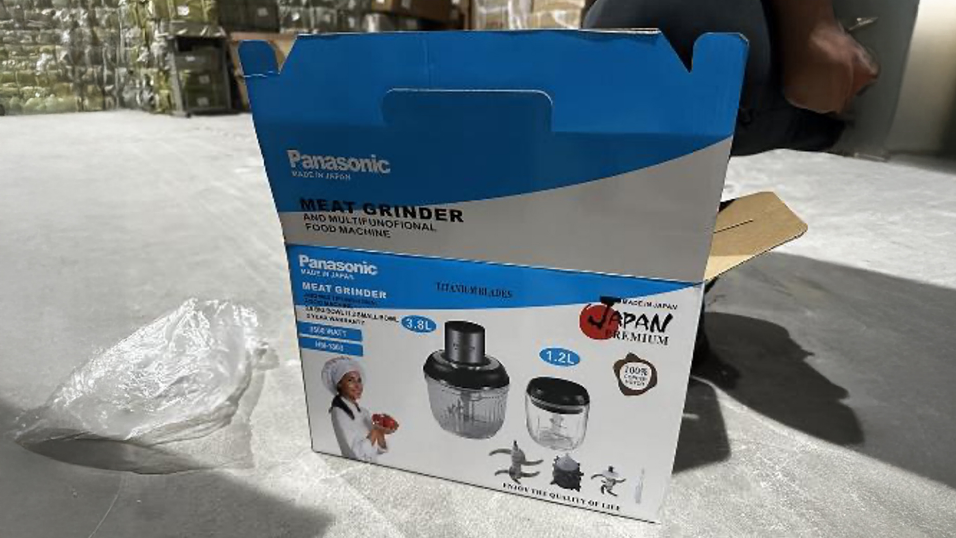
2,800 counterfeit juicers were seized at a distribution warehouse in Zhejiang Province, China. (2024)
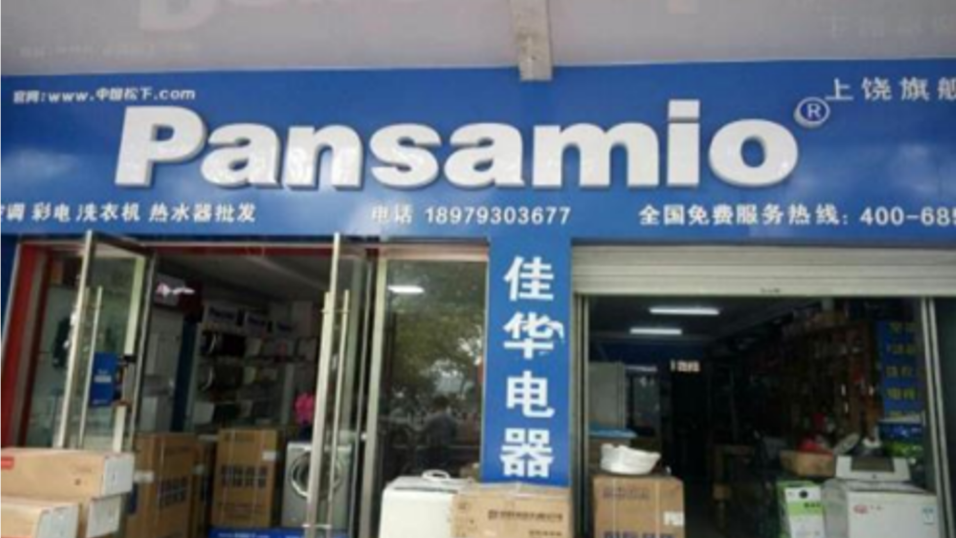
Dealers in China selling counterfeit products under a trademark that looks similar to “Panasonic.” We halted these infringements by filing a civil lawsuit. (2024)

Customs Measures
The Panasonic Group has registered its intellectual property rights, including trademarks, with customs authorities in 41 countries and territories (as of February 2025) to stop the flow of counterfeit products across borders. In addition, we have been providing training for customs officials in cooperation with local authorities, particularly in countries and territories where infringements of the Panasonic Group’s rights have occurred.
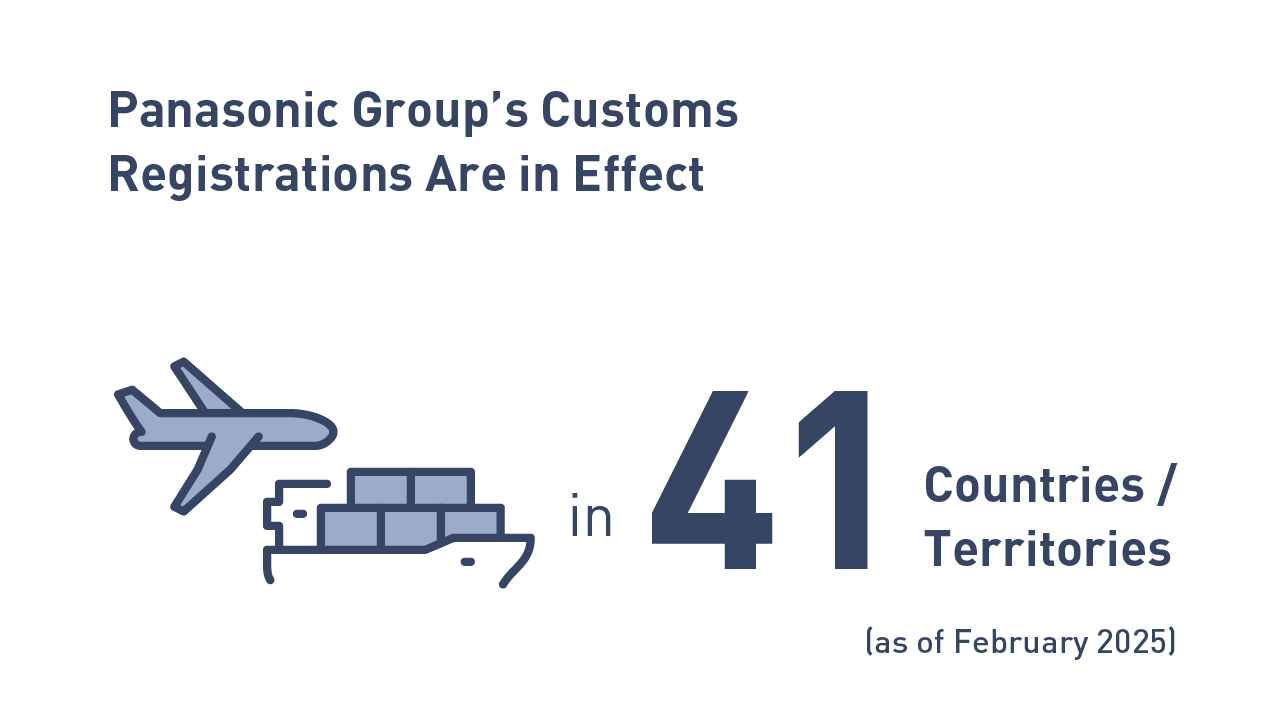
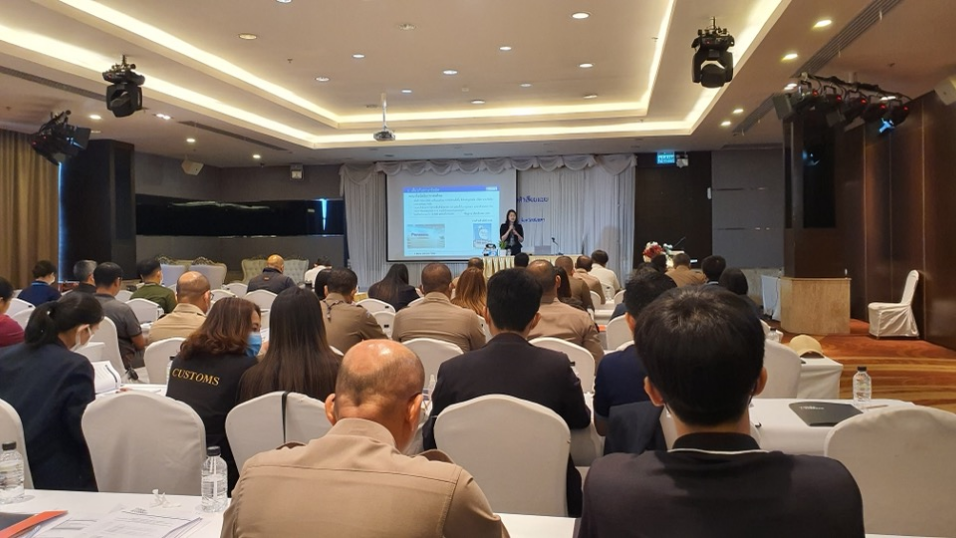
In cooperation with local authorities, we conduct training for customs officers jointly with other companies. This photo shows a training session in Thailand. (2024)
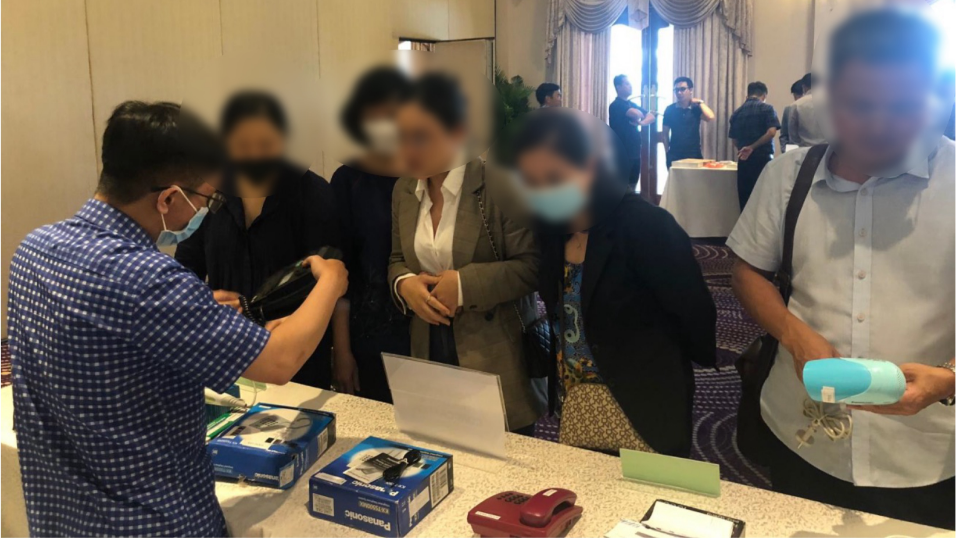
Training in Vietnam. Customs officers directly examine differences between genuine and counterfeit products to determine which are genuine and which are fake. (2024)
Prevent Purchase

Consumer Awareness Activities
We have been using our website, emails, public relations, and advertising to raise awareness of the risks related to counterfeit products for our customers and business partners. In addition, we have also been producing awareness-raising videos for use on social media.
For use in the Chinese market, the divisions of the Panasonic Group in charge of intellectual property in Japan and China have jointly produced an awareness-raising video for use on social media about counterfeit air conditioners. The video is being used on TikTok to raise awareness. The video won the highest award for “Best Video Production” in TikTok’s awareness-raising video contest. (2024)

Screen shot of the video
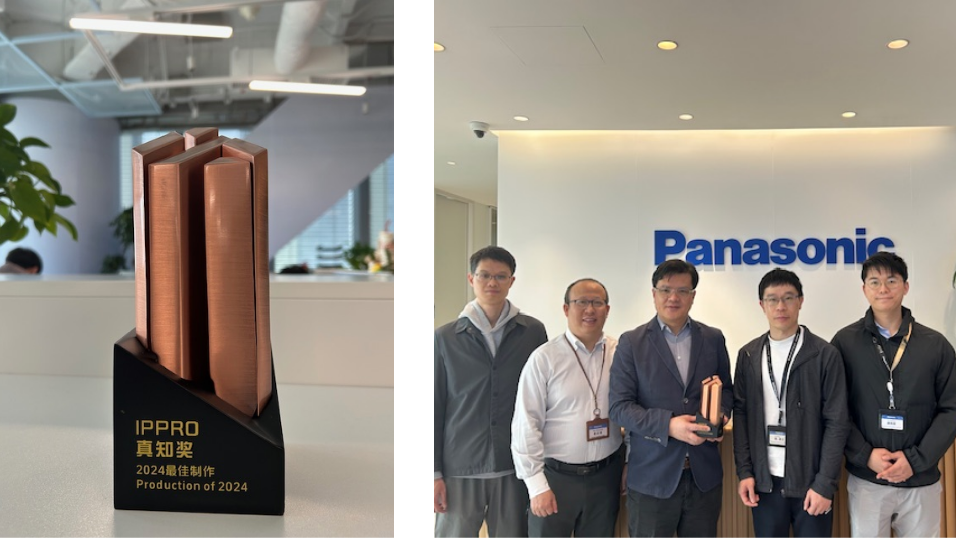
The “Best Video Production” award trophy (left) and the Chinese intellectual property staff members in charge of the video production (right).

Intellectual Property Education at Schools
We provide awareness-raising education on intellectual property for students and dispatch our own lecturers to training courses organized by authorities on an ongoing basis. Since 2020, our employees have been giving in-person and online presentations for junior high schools in Japan. These introduce the anti-counterfeiting measures of the Panasonic Group. We also send our employees as instructors for training courses for intellectual property authorities in various countries such as training courses by the Japan Patent Office for officials in developing countries and training courses by the U.S. Patent Office for ASEAN officials.
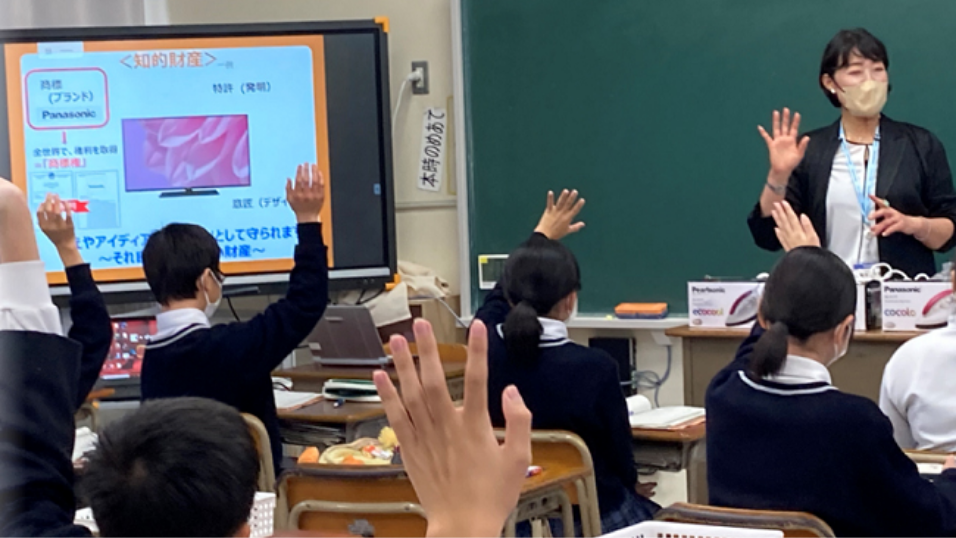
An example of an in-person presentation. Our employees visited Anzai Junior High School in Hiroshima City to explain the Panasonic Group’s anti-counterfeiting measures and intellectual property rights. (2022)
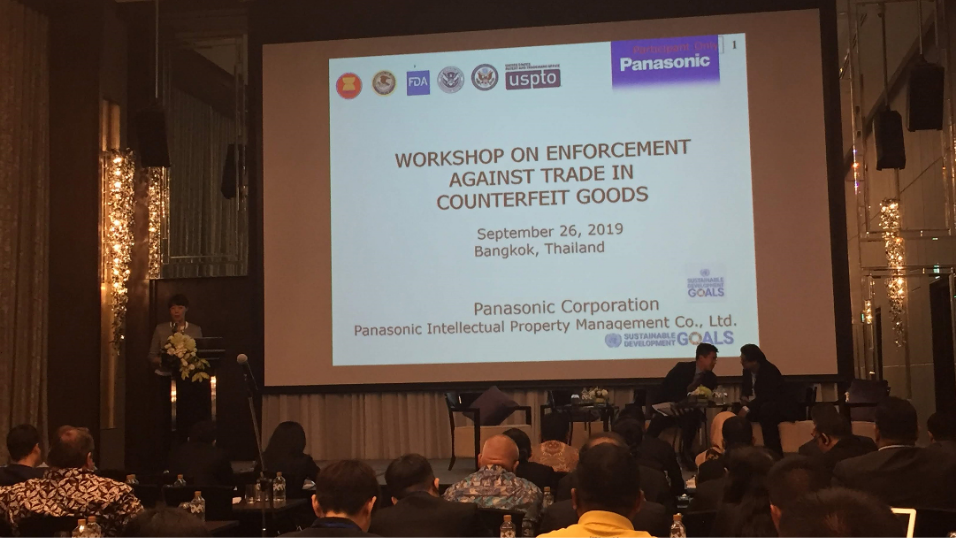
An example of training by authorities on national and regional intellectual property issues. One of our employees led a training session in Bangkok, Thailand, which was organized by the U.S. Patent Office for ASEAN officials. (2019)
Lobbying Activities
The Panasonic Group serves on the managing board of the International Intellectual Property Protection Forum (IIPPF), an industry organization dedicated to the resolution of intellectual property rights infringement issues, such as counterfeit and pirated products in foreign countries. We have continuously been lobbying foreign authorities to improve the legal system and enforcement of laws through the IIPPF and the Japanese government.
One example of IIPPF’s activities is that since 2023 we have been holding events to raise awareness about intellectual property rights among Generation Z called “The Forefront of Anti-Counterfeiting Measures in the World” in cooperation with the World Customs Organization (WCO).
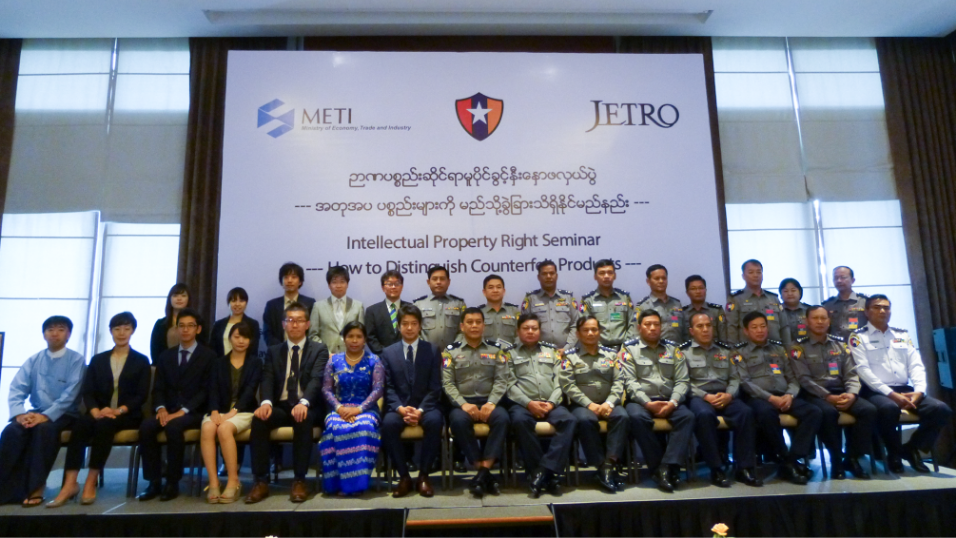
A seminar on intellectual property rights in Myanmar organized by The Japan External Trade Organization (JETRO), which serves as the secretariat of IIPPF, and the Ministry of Economy, Trade and Industry (METI). The seminar offers a place for active discussions with Myanmar’s intellectual property authorities. (2019)
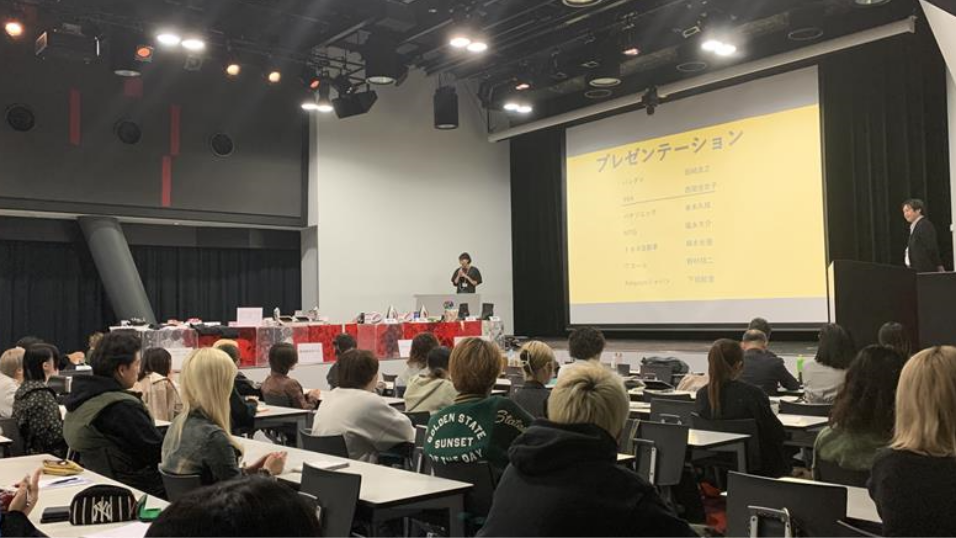
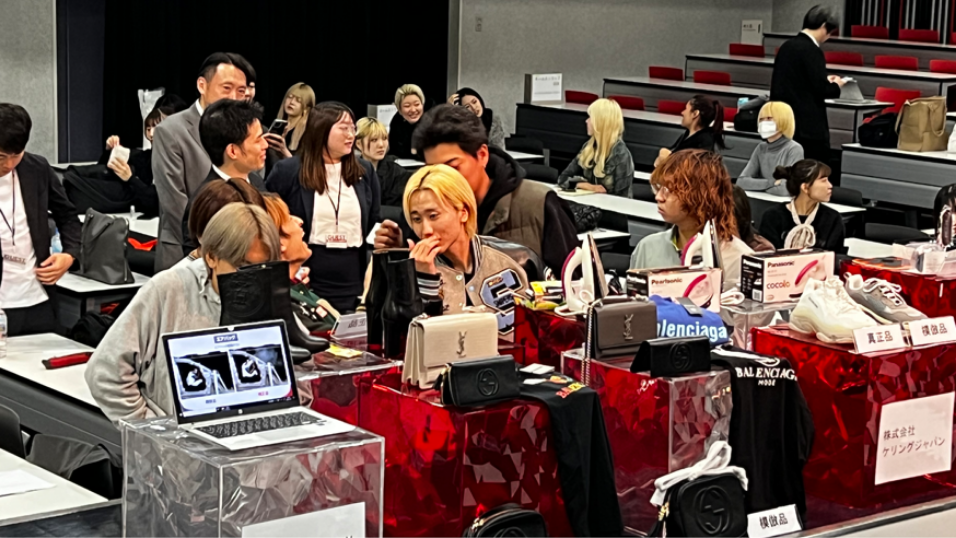
An educational event for Generation Z students, “The Forefront of Anti-Counterfeiting Measures in the World,” was held at the Nagoya campus of the International Fashion College. Students learned how to distinguish between genuine and counterfeit products. (November 11, 2024)



